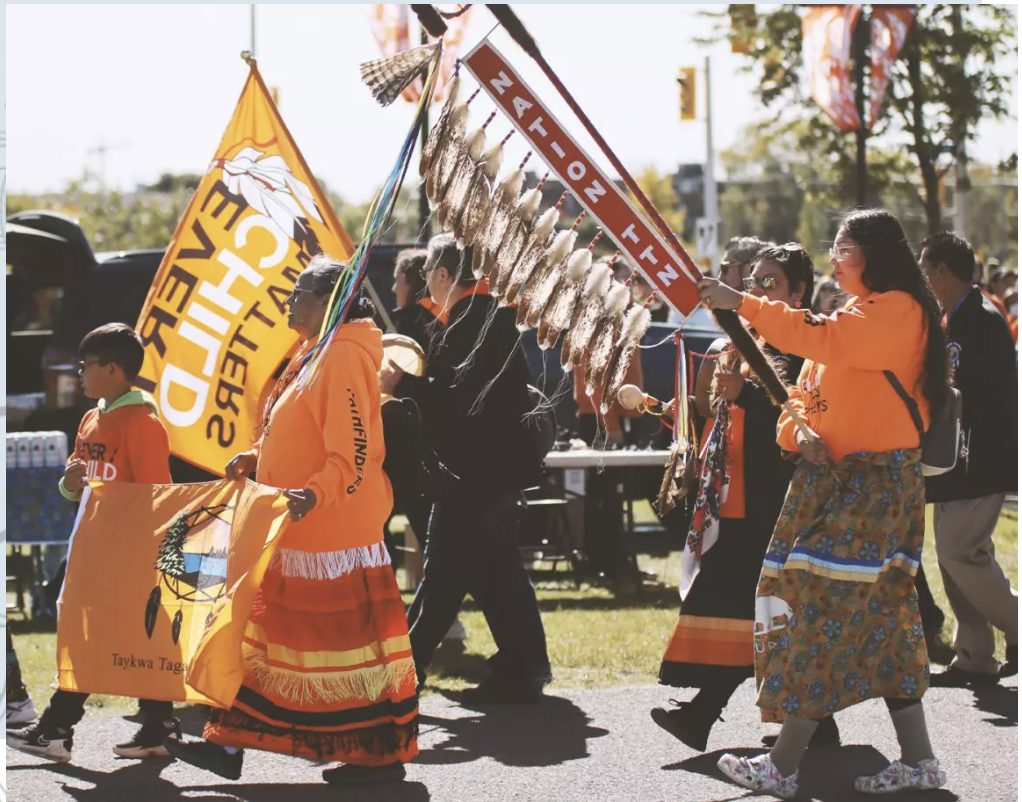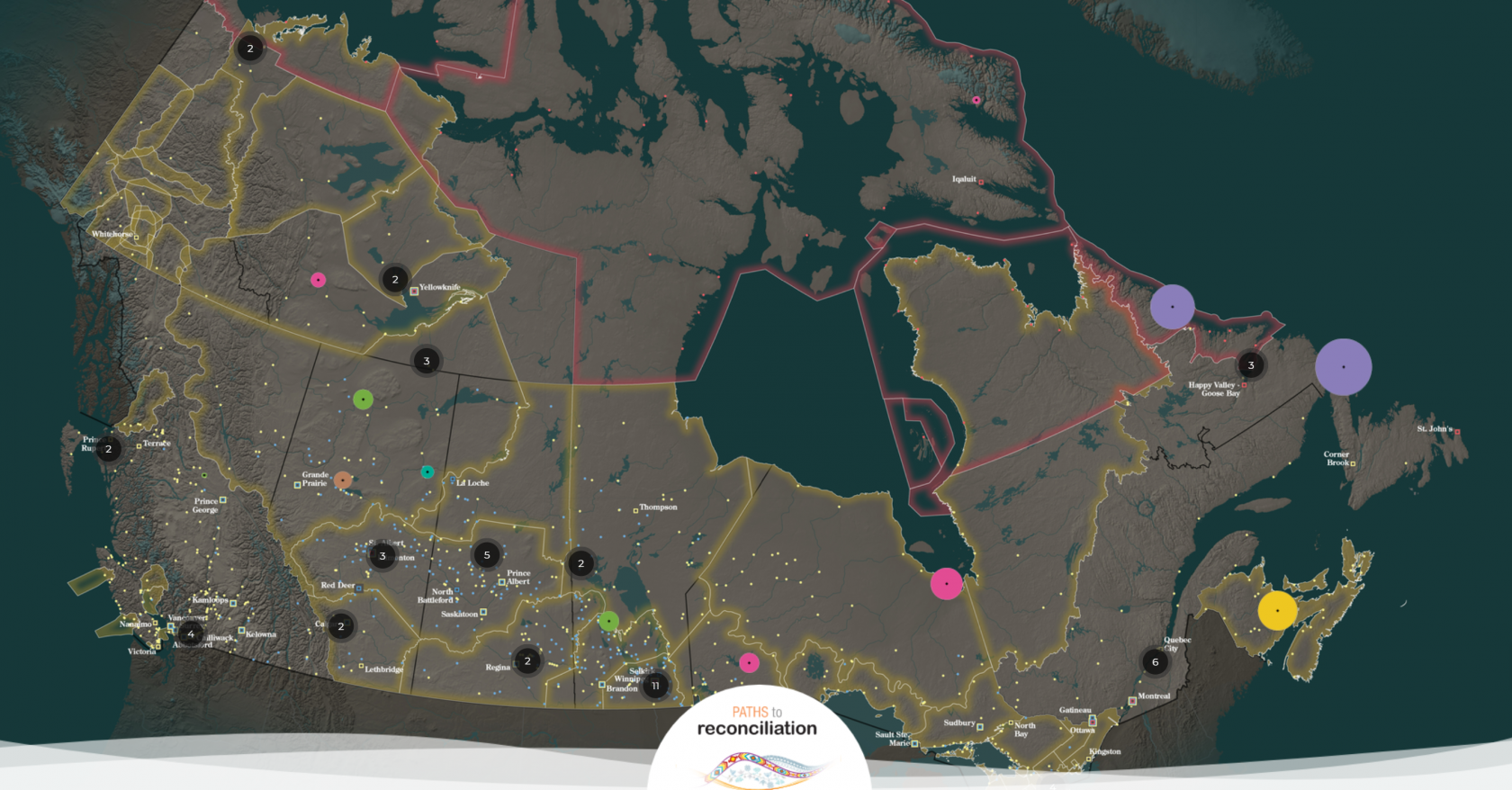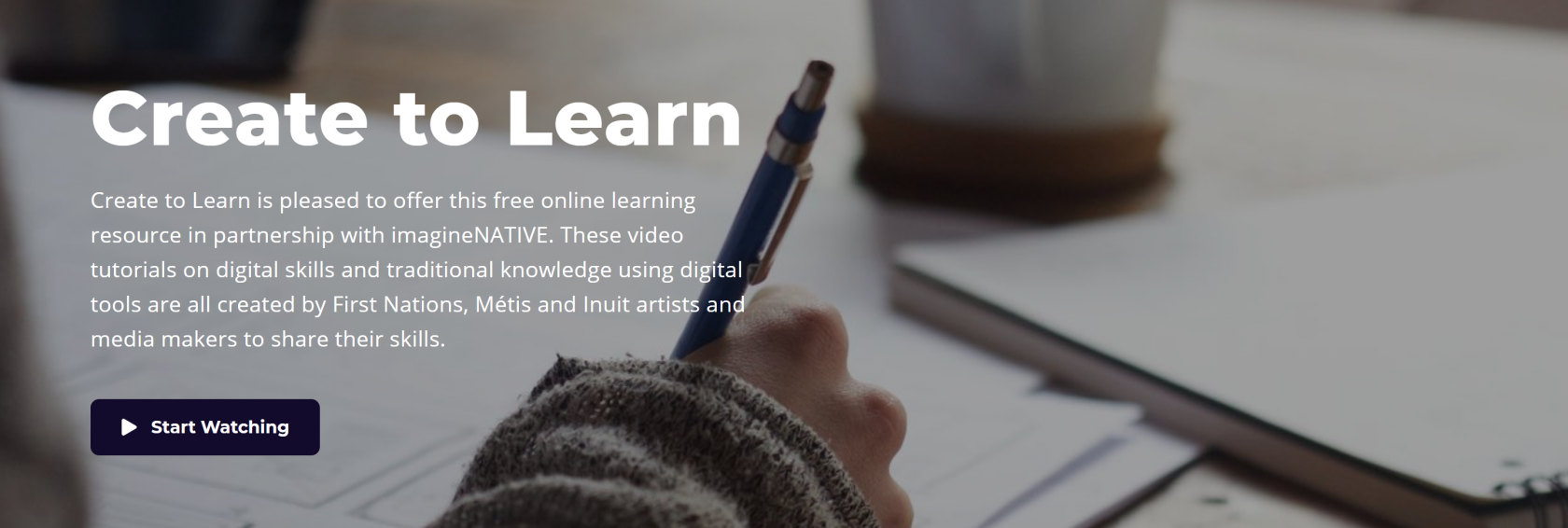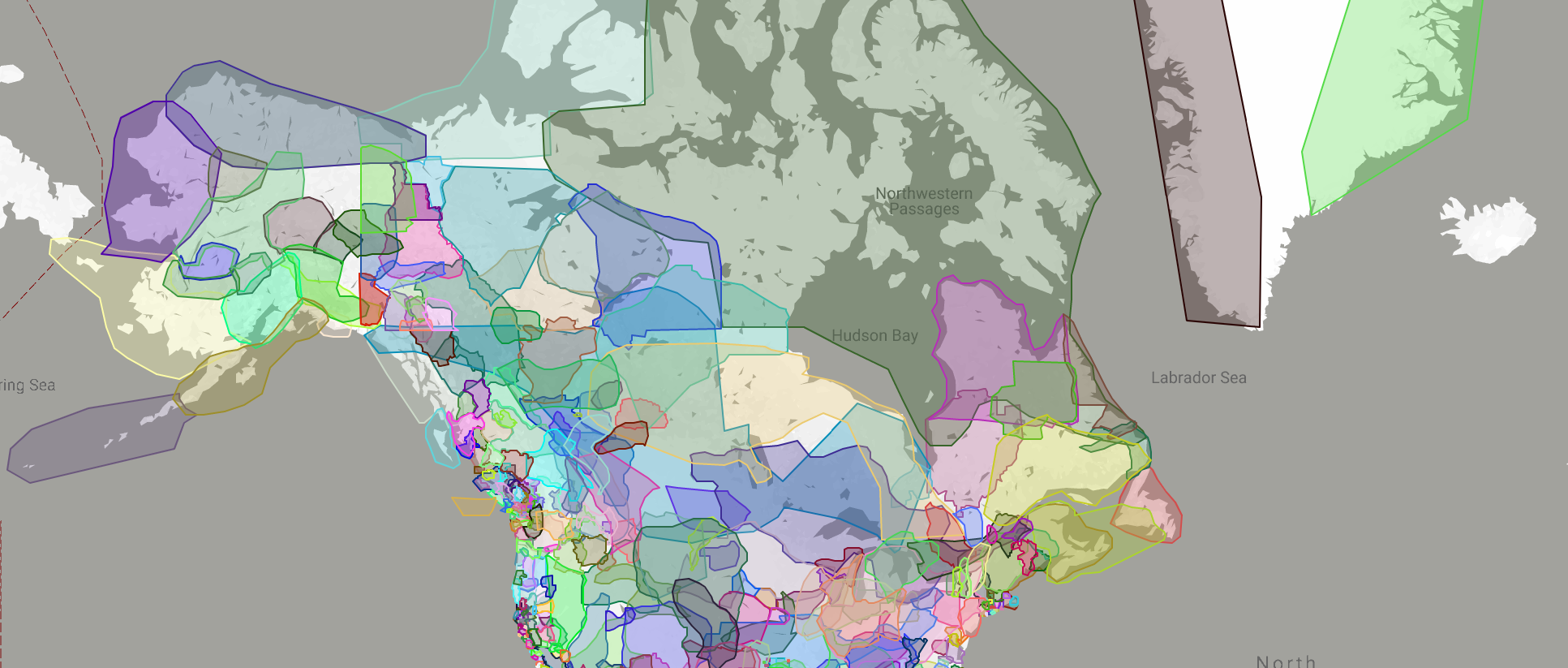Website Resources
Truth and Reconciliation Week
TheNational Centre for Truth and Reconciliation is hosting Truth and Reconciliation Week 20232024, is a national program open to all schools across Canada. This
- Virtual
ourSessionstheme(Septis23-27):“RememberingWe'retheofferingChildren”.TakingJoin us as we memorialize the children lostTruth totheAction,residentialaschoolweek-longsystemeducationalandprogramhonour Survivors and their families. Learning and commemorating the truth of our history from First Nations, Métis, and Inuit knowledge keepers is an important part of the pathopen toReconciliation.all
willThisschoolsyearacrossincludesCanada,anthatexpandedsupportsprogram withfree, age-appropriateappropriate,materialeducation curriculums for students in grades11-12.throughStudents12.Dayshave1the opportunity to3learnfeaturedirectlypre-recordedfromvideosresidential school Survivors, Indigenous artists andaathletes,liveandQother&subjectAmattersession.experts.OnLearningSeptember 30, studentstopics willbeincludeablethe truths, history, and impacts of the Residential School System and what learners and educators can do toviewtakeaanliveactiontelevisedtowardbroadcast for Orange Shirt Day from their homes.reconciliation. AnLunchaccompanyingandresourceLearns: We invite you tothis,join ourisdailythe magazineRemembering the Childrenpublished by National Centre for TruthLunch andReconciliation.LearnThiswebinars.resourceTheseofferssessionsaarewayaimedtoatbeginanconversationsadultwithaudiencestudentsand hosted over zoom webinar andisstreamedintended for grades 5-12.Youtube.
Canadian Geographic’s Education Indigenous Resources
The Can Geo Education website contains resources to support education as a tool for reconciliation. Students can interact with Google Earth Voyageur stories to learn about Canada’s residential schools, original place names, and Indigenous cultural heritage. Other resources include Paths to Reconciliation, a website charting residential schools not yet recognized by the Canadian federal government, and Re:Location, an interactive website to learn about the history of Indigenous community relocation across Canada.
Create to Learn
Create to Learn is a video-based resource featuring online tutorials on digital skills and traditional knowledge using digital tools. All videos and resources are created by First Nations, Métis, and Inuit artists and creatives to showcase their skills. Topics include:
-
Health & Well-Being
-
Writing
-
Video & Film
-
Visual Arts
-
Game Design
-
Drones
-
Music & Songwriting
-
Entrepreneurship & Design
-
Photography & Photoshop
- Cultural Teachings
Whose Land
Explore the Whose Land website to learn about the territory your home or business is situated on, find information for a land acknowledgement, and learn about the treaties and agreements signed across Canada. Educational videos are available to watch, that will give you a better understanding of why land acknowledgements are important, and the way Indigenous people view their relationship to land. The app consists of six different maps of Indigenous territories, Treaties, and First Nations, Métis, and Inuit communities. Each community's location will eventually host a land acknowledgement video, and other information that the community would like to include on their page. The website showcases lesson ideas for students across Kindergarten to Grade 12:
National Day for Truth and Reconciliation
Each year, September 30th marks the National Day for Truth and Reconciliation and Orange Shirt Day. Orange Shirt Day is an Indigenous-led grassroots commemorative day intended to raise awareness of the individual, family and community inter-generational impacts of residential schools, and to promote the concept of “Every Child Matters”.
Additional Resources
- Promise Keepers Canada—A Somber Summer Article
- Vancouver School of Theology—Every Child Matters by Ray Aldred
- Legacy of Hope—Where are the Children?
- Truth & Reconciliation Commission Reading Challenge




